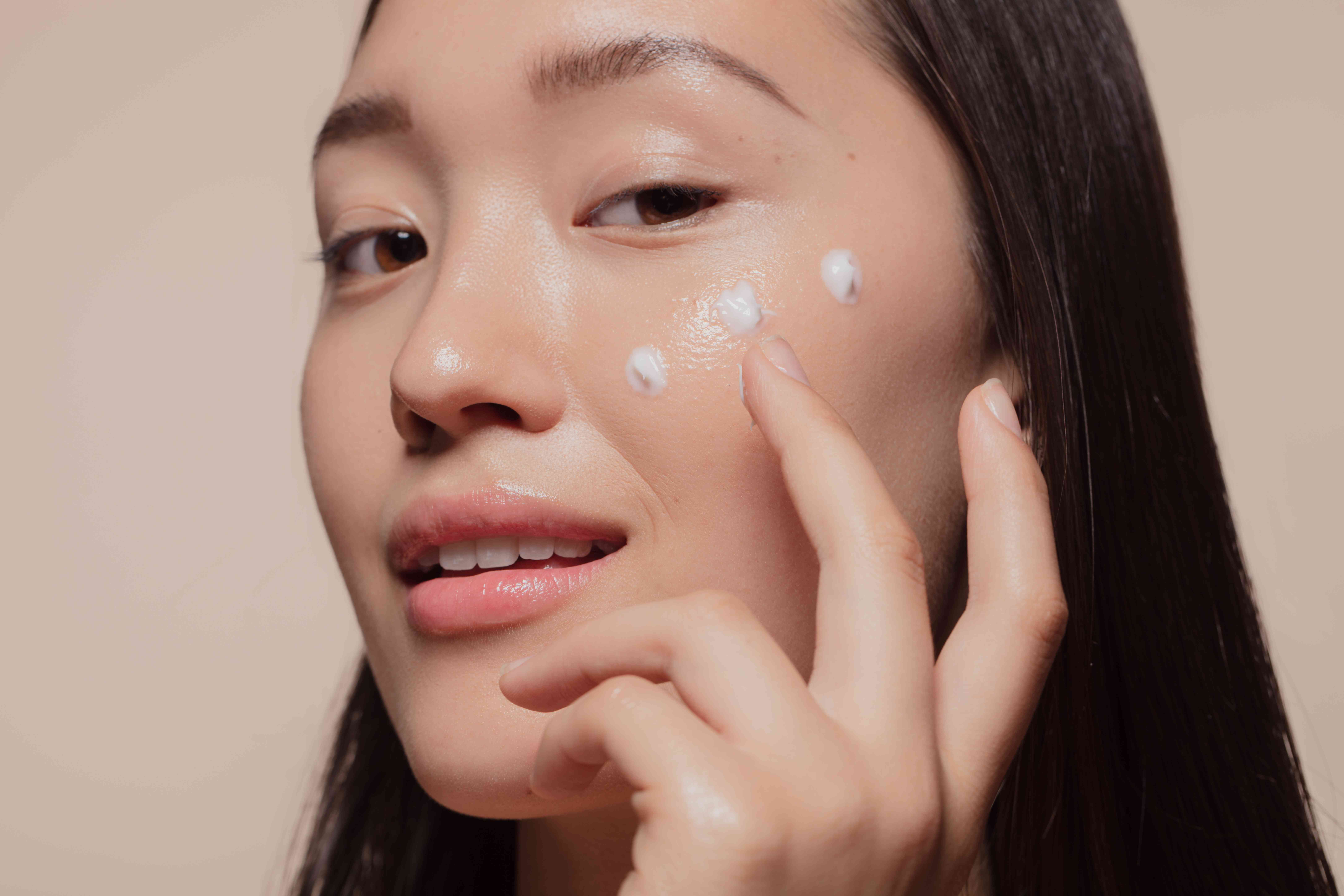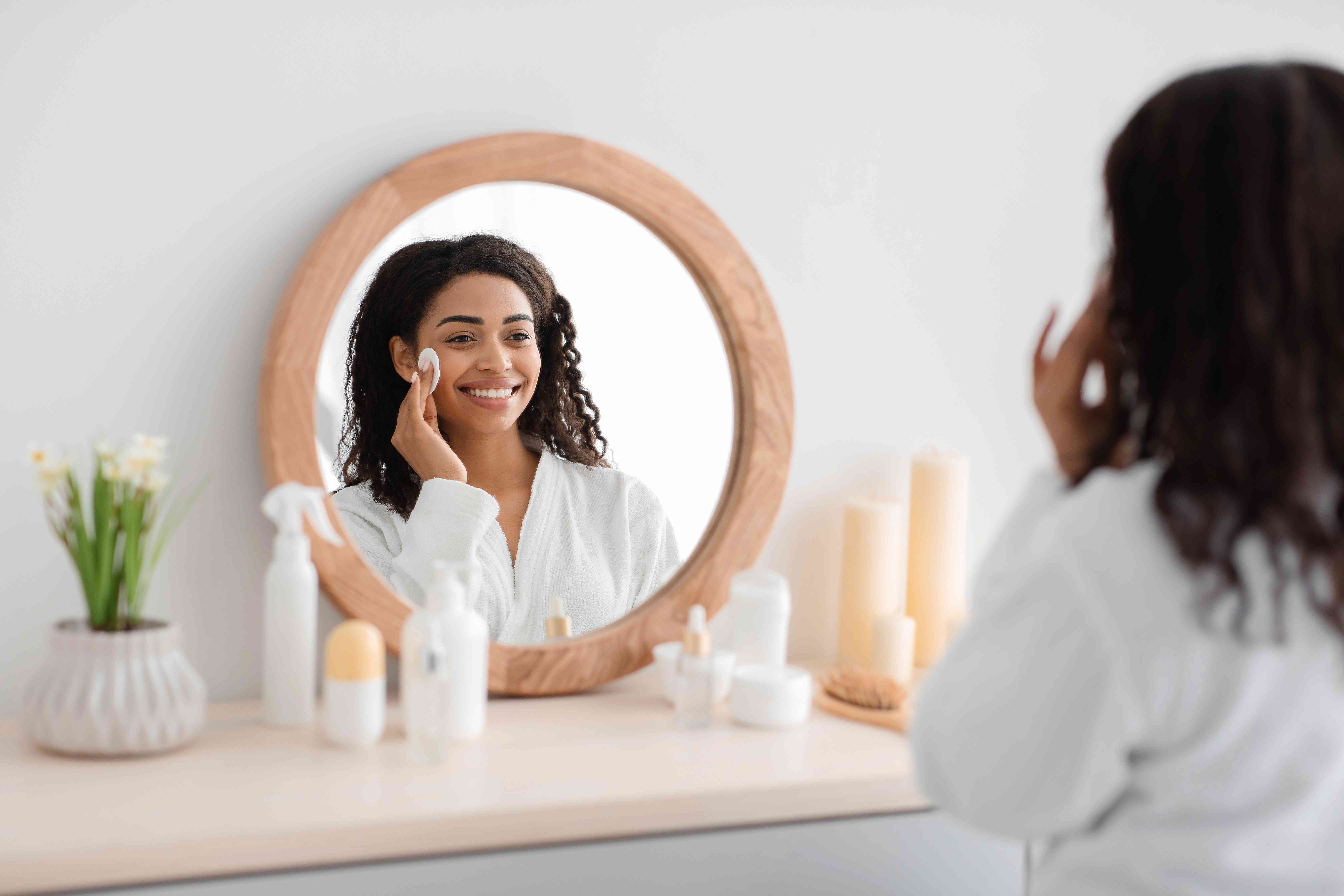

As we age, our skin changes, and it's important to give it the care it deserves. That's where a skincare routine comes in. Having a personalized skincare routine can make all the difference in maintaining healthy, youthful-looking skin. It's not just about slathering on any old product you find at the drugstore; it's about understanding your skin type, and its specific needs, and finding the right products that work for you.
But with so many options out there, how do you know where to start? That's where this quiz comes in. It will help you identify your skincare basics and provide tailored tips to keep your skin looking its best.
Ready? Let's get started!
With so many cleansers out there, how do you know which one is right for you? Take this quiz to find out!
How would you describe your skin type?
(a) Dry
(b) Oily
(c) Combination
What texture do you prefer in a cleanser?
(a) Gel
(b) Foam
(c) Oil/Milk
Do you have any specific concerns like acne or sensitivity?
(a) Yes
(b) No
If you answered mostly a's: You have dry skin. Look for hydrating cleansers with nourishing ingredients like hyaluronic acid. These will help replenish moisture and keep your skin feeling soft and supple.
If you answered mostly b's: You have oily skin. Opt for oil-free or foaming cleansers to control excess oil and minimize shine. Look for ingredients like salicylic acid or tea tree oil, which can help regulate sebum production.
If you answered mostly c's: You have combination skin. Choose a gentle cleanser that balances oil production without drying out your skin. Gel cleansers are a great option as they can remove excess oil from the T-zone while still keeping the rest of your face hydrated.
Remember, regardless of your skin type, gentle cleansing is key! Avoid harsh ingredients that can strip away natural oils and disrupt the balance of your skin.
Moisturizing is a crucial step in any skincare routine, and finding the right moisturizer for your skin type can make all the difference. Whether you have dry, oily, or combination skin, there are moisturizers out there that will keep your skin hydrated and healthy.
Now let's find your ideal moisturizer based on your unique needs:
How would you describe your skin's hydration level?
(a) Dry/Dehydrated
(b) Normal
(c) Oily/Combination
Which texture do you prefer in a moisturizer?
(a) Cream
(b) Lotion
(c) Serum/Gel
Do you have any specific concerns like aging or dryness?
(a) Yes
(b) No
If you answered mostly a's: You have dry/dehydrated skin. Look for rich creams with hydrating ingredients like shea butter or hyaluronic acid. These moisturizers will deeply nourish your skin and restore its natural moisture balance.
If you answered mostly b's: You have normal skin. Opt for lightweight lotions that provide balanced moisture without feeling heavy. Look for ingredients like ceramides or glycerin, which help to maintain healthy hydration levels.
If you answered mostly c's: You have oily/combination skin. Choose oil-free or gel-based moisturizers that won't clog your pores. Look for lightweight formulations with ingredients like aloe vera or niacinamide, which can help control excess oil while providing essential hydration.
When it comes to skincare, sometimes we need a little extra boost to address specific concerns. That's where serums and special treatments come in! These targeted products can provide the extra TLC your skin needs to look its best. So, let's dive into the world of serums and treatments and find the right ones for you!
What is your main skincare concern?
(a) Fine lines/Wrinkles
(b) Dark spots/Hyperpigmentation
(c) Acne/Breakouts
Which ingredient are you most interested in?
(a) Hyaluronic acid
(b) Vitamin C
(c) Salicylic acid
How much time are you willing to dedicate to your skincare routine?
(a) I'm all in!
(b) I have a few minutes to spare
(c) I prefer quick and simple
If you answered mostly a's: You have concerns about fine lines/wrinkles. Serums containing ingredients like retinol or peptides can be your secret weapon. Retinol works wonders for reducing the appearance of fine lines and wrinkles, while peptides can help improve skin elasticity.
If you answered mostly b's: You have concerns about dark spots/hyperpigmentation. Look for serums that contain vitamin C or niacinamide. Vitamin C is a powerful antioxidant that helps brighten the skin and fade dark spots.
If you answered mostly c's: You have concerns about acne/breakouts. Serums with salicylic acid or tea tree oil should be on your radar. Salicylic acid gently exfoliates the skin, unclogs pores, and helps prevent breakouts.
In addition to serums, don't forget to incorporate other treatments into your routine. Face masks can provide deep hydration, brightening, or purifying effects depending on your needs.
When it comes to sunscreens, there are two main types: chemical and physical (mineral) sunscreen. Chemical sunscreens absorb UV rays, while physical sunscreens block or reflect them.
Here are some tips to help you select the right sunscreen based on your skin type and needs:
Consider Your Sun Exposure Level:
How often do you spend time in the sun?
(a) Rarely/Never
(b) Occasionally
(c) Frequently
If you answered a or b: You should aim for daily sun protection with an SPF of 30-50 or higher, regardless of how much time you spend in the sun.
Choose Your Preferred Sunscreen Type:
What is your preferred sunscreen type?
(a) Chemical sunscreen (absorbs UV rays)
(b) Physical sunscreen (blocks/reflects UV rays)
If you answered a: Chemical sunscreens may be your go-to choice. Look for broad-spectrum options that protect against both UVA and UVB rays.
If you answered b: Physical sunscreens might be more suitable for you. These contain active ingredients like zinc oxide or titanium dioxide that provide a physical barrier against the sun.
Determine Your Preferred SPF Level:
What SPF level do you prefer?
(a) SPF 30-50
(b) SPF 50+
(c) I'm not sure/I don't know
If you answered a or b: Opt for an SPF of 30-50 or higher. Higher SPF offers increased protection, but it's important to reapply sunscreen every two hours, regardless of the SPF level.
Remember, skincare is a continuous process that evolves with your needs. Here's a quick recap:
Cleansing: Choose a cleanser based on your skin type—hydrating cleansers for dry skin, oil-free or foaming cleansers for oily skin, and gentle cleansers for combination skin.
Moisturizing: Select a moisturizer that matches your hydration level—rich creams for dry/dehydrated skin, lightweight lotions for normal skin, and oil-free or gel-based moisturizers for oily/combination skin.
Serums and Special Treatments: Address specific concerns with serums containing ingredients like retinol or peptides for fine lines/wrinkles, vitamin C or niacinamide for dark spots/hyperpigmentation, and salicylic acid or tea tree oil for acne/breakouts.
Sun Protection: Shield your skin from sun damage by choosing a sunscreen with an SPF of 30-50 or higher. Consider whether you prefer chemical or physical sunscreen.
Now that you have a better understanding of your skincare needs, you can confidently build a routine that works best for you.
Disclaimer: The information provided in this article is for general informational purposes only. It is not intended to be a substitute for professional advice, diagnosis, or treatment. Always consult qualified professionals regarding any questions or concerns you may have about your skincare routine.
